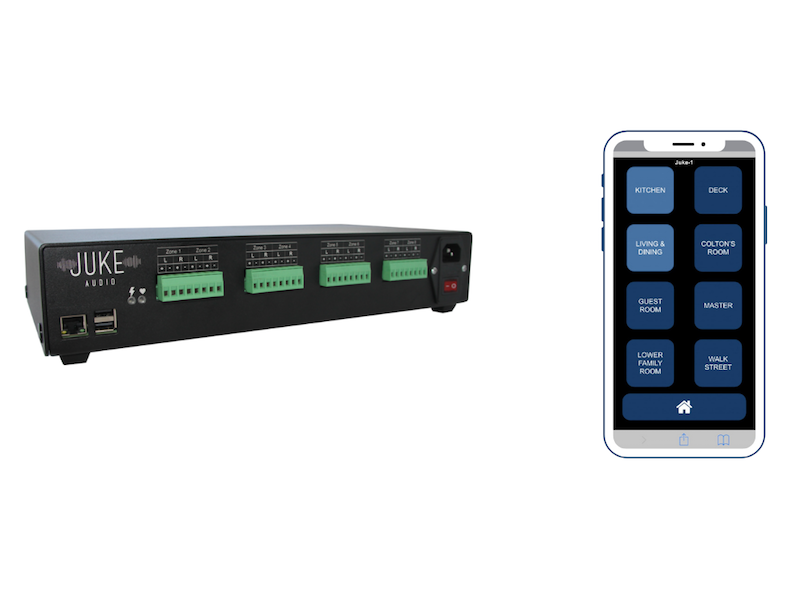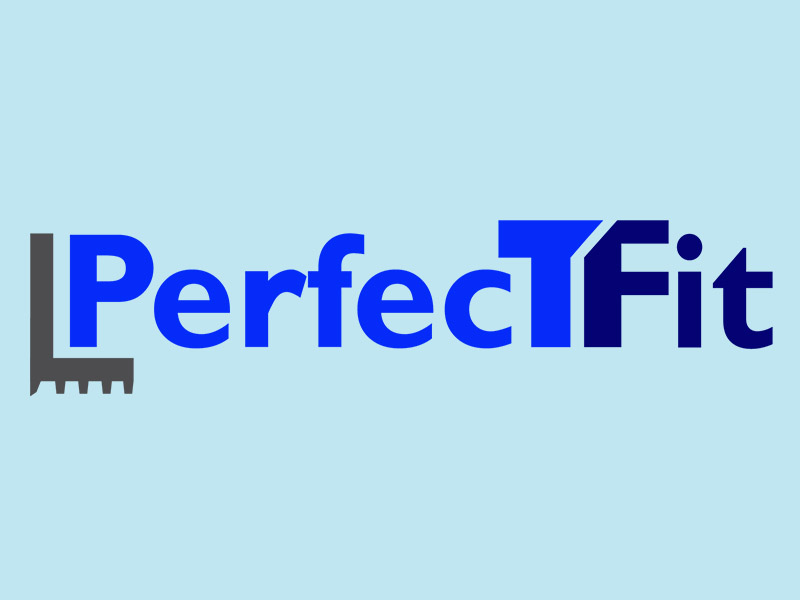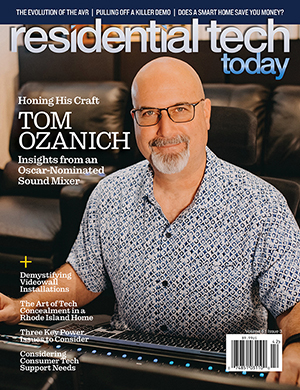Like so many entrepreneurial endeavors, Juke Audio was born out of a need to solve a technical challenge. Back in 2015, father and son company founders Brad and Colton Forth had moved into a new house with distributed audio ceiling speakers and in-wall speakers, but nothing to power them. They explored available amplifier options that would be easy to install and could connect to wireless streaming music sources from a mobile phone or tablet.
“We didn’t really see anything that fit the bill,” Colton Forth said. “So, my father, who had been an electrical engineer before moving into finance later in his career, designed what would eventually become a prototype for Juke Audio. Initially, it was only used to power the speakers in our own house.”
As time went by and more and more people inquired about what was driving the music coming out of the ceiling speakers in the Forth home, Brad and Colton realized that there could be broader interest in what they had created.
“It didn’t even have a name because it was just for our own use,” Forth recalled.
A Different Kind of Music Business
After Colton graduated from the University of Southern California, he set aside his music manager/agent career objectives, sticking with the hot hand to begin commercializing Juke Audio with his dad and firmware engineer, Yutong Gu, a fellow Trojan who earned top honors with a Master’s degree from USC’s Viterbi School of Engineering.
The first Juke Audio commercialized product, called the Juke-8, arrived in November 2019 with a lot of improvement to what the “prototype” had included. Listed at $1,399, it is an eight-zone (16-channel) amplifier for powering architectural speakers throughout an entire home or building. The product also serves as a receiver and allows up to four people to stream simultaneously to any combination of rooms via Wi-Fi.
Juke Audio Uses Web Interface
There is no app, but rather a web interface that can be accessed by a device that is on the same Wi-Fi network as the Juke-8. You utilize the Juke interface to allocate any of the four streaming inputs that Juke has built in.
“It doesn’t take up any more energy to leave the zones turned on, so the intent is for the user to leave the zones turned on that they tend to listen to most and just stream directly within their normal music streaming app,” Forth said. “We want to keep the user in the streaming apps they are already most comfortable with rather than forcing them to learn something new.”
Since going to market, Forth says, Juke Audio’s Juke-8 has been installed in approximately 1,500 houses, with 75-percent of sales direct to consumer and the other 25 percent builders and low-voltage installers.
“We’re seeing situations very similar to the one we were in moving into our house, with people who have ceiling speakers, are not sure what to do with them, then coming across our product either online or via referrals,” Forth noted. “We’re also getting repeat professional clients who did their first install and found that their customer base loved it. Now they’re feeling more comfortable pitching it to their clients.”
Familiar Customer Stories
According to Forth, many of Juke Audio’s initial customers are seeking an audio amplifier that can power multiple rooms and allow more simplistic wireless streaming from a mobile phone but “doesn’t cost an arm and a leg.”
After initially “bootstrapping” the start-up by running product assembly and shipping out of Brad Forth’s Southern California home, Juke Audio’s four-employee staff moved operations to a Texas-based contract manufacturer.
Although Forth believes that Juke-8 handles “about 90 percent” of what Juke Audio consumers are looking for from it, future plans may also include Amazon Alexa, Apple Homekit, and Chromecast integration. Until then, Juke Audio hopes to keep things simple, enabling quick installs that are just a matter of connecting the speaker wires and running an Ethernet cable to the Juke-8.
“You don’t need a different hardware piece for every single room,” Forth said. “With a single hardware piece that’s about the size of a textbook, you can power eight rooms with audio.”
Related: Episode CORE Speakers Offer Expanded Audio Installation Options









